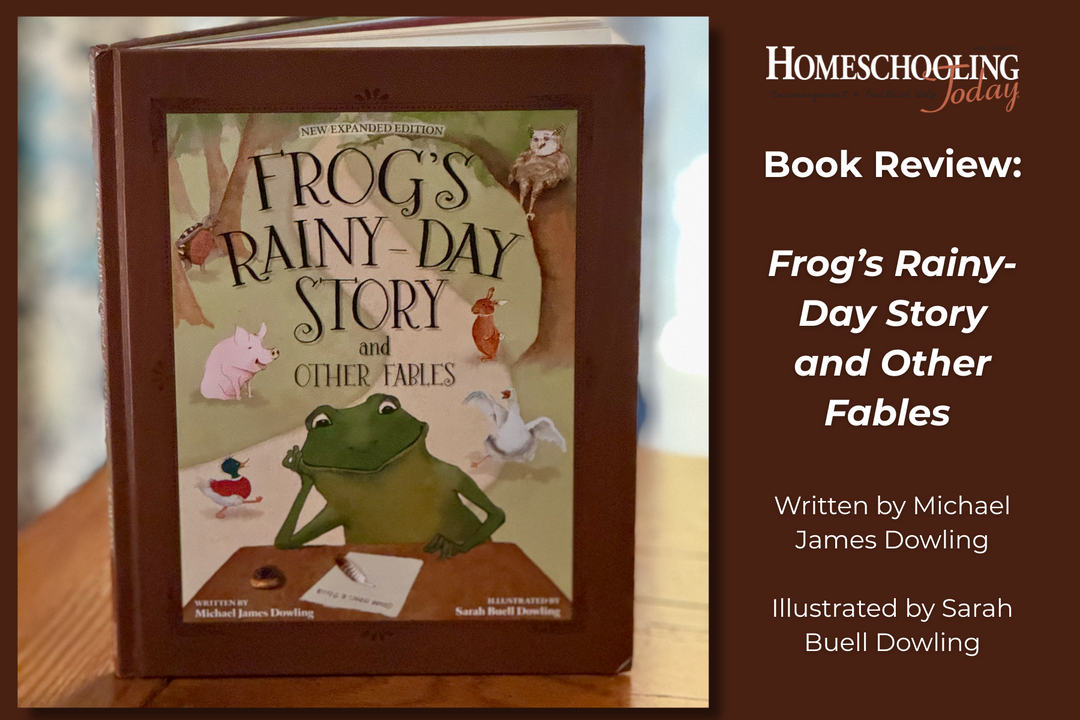5 Ways to Encourage a Love of Reading in Your Kids

Do you have a reluctant reader? That child who can’t wait to get through reading time? The one who would rather do anything else? Don’t give up! You can encourage a love of reading in your child.
My youngest son was that kid. I want to share our story with you, and give you some tips about how you can help your reluctant reader to love reading, too.
A Snow Day
It was snowing outside.
That may not seem like a big deal to many of you, but we live in Texas. Many years the snow barely dusts the grass. And since Texans rarely see snow, we have no idea how to drive on it! We aren’t equipped—no chains for the tires, no experience stopping a skid—and there are way too many people driving trucks and SUVs like Apolo Ohno going for gold at the winter Olympics. So it doesn’t take much for schools to be canceled. And any child knows, an unexpected closing of school is the epic, unplanned day off.
If the weatherman forecasts snow students start praying, and to prove their faith is real they might even skip doing their homework. But my kids are homeschooled. Barring an unexpected blizzard of legos in the hallway, we walk safely from our bedroom to the living room, no chains required. So we don’t take the day off of school when it snows. Yes, I’m that mom. But to make up for it, we have some of the best snow days around all because of a snow day miracle.
These rare, fluffy white days often begin with my youngest making a tent from blankets and pillows. My oldest prefers to lounge across the couch. He is the tallest one in the family and covets having the whole thing to himself. We build a fire in the fireplace and make hot chocolate topped with enough marshmallows to induce sugar-coma naps. Then we read. We read-aloud. We read silently. We come up for some S’mores, and we read some more. Sometimes we throw in an educational video or play a game, but for the most part we read.
Why do we have these fire starting, tent making, S’more laden, read-all-day holidays?
Because it was during a snowstorm that my youngest son discovered a love for reading.
Can We Be Done Now?
I required both of my boys to read a book of their choice for thirty minutes each day. For several years I would hear my youngest say things like, “Hey mom, there’s only five minutes left on the timer. Can I be done now?” Or, “Mom there are ten minutes on the timer, but I’m at a good stopping place. Can I be done now?” Or, “I’m at the end of a chapter. Can I be done now?”
You get the idea—in my house reading was synonymous with the question, “Can I be done now?”
So I waited. I continued to lay out a buffet of appetizing books. Each morning we sat around the living room and read silently together so I could model the importance of reading (ok, maybe so I could have an excuse to sit and read a book instead of doing housework, too). Thankfully, my youngest did love listening to me read, so we always started our day with a read-aloud and often read more than I had planned.
Then one day, it was snowing outside.
I built a fire and he decided to pull all the of cushions off the couch to make a sort of tent to read his book under. He began reading The Lightning Thief by Rick Riordan. The timer went off and he hadn’t asked, “Can I be done now?” Instead I heard the tent-muffled words, “Can I keep reading?”
Being the stealthy homeschooling mom that I am, I kept the shock and excitement from my face. Casually I said, “Well, you really need to get your other school work done, but I guess you can read a little longer.” He read for most of the day, surrounded by blankets and pillows on that snowy afternoon. The Percy Jackson Series was the first series he ever finished. The first of many.
How to Encourage a Love of Reading
My youngest son continued to ask for more time to read, especially when a new series caught his imagination or he wanted to stay up later than his bed time (I’m not proud. I took it). But it was because of that first snow day when he finally wanted to read more that we began to celebrate, “Can I Read Some More Day?” That is what I called it anyway—the day most children call a Snow Day.
#1 Read Aloud to Your Kids
Reading aloud gives us the opportunity to help our kids develop language arts skills without the work of reading—and for young learners, and even some older ones, it can be work!
It’s amazing all of the benefits your kids will get from this one simple habit. Hearing books read aloud:
- Helps them learn grammar, good sentence structure, and vocabulary. Most of these skills are "caught" more than "taught" through the language of those around us. It's a way to teach language arts naturally.
- Allows them to enjoy story. Because you can read books that are beyond a students reading level, an entire world through story is opened up for them. As people we seemed to be hard-wired to respond to story. Is it any surprise that we get to know God through His word?
- Helps them make the connection between the written and spoken word. By hearing books read aloud, our kids get to hear the way our voices rise with a question. They get to hear the forcefulness of a statement ending in an exclamation. They hear the written word and make connections between the two.
#2 Put Out a Buffet
Have you ever noticed just how many choices there are on a buffet? There's literally something for everyone. From a variety of meats, vegetables, fruits, and desserts to the type of foods—Italian to Mexican cuisine.
You can do the same around your home with books. Scatter picture books and graphic novels. Choose some fiction and non-fiction, biographies and novels. Don’t require them to read the books, but just have them casually laying around the home. You can be sneaky like that.
Keep introducing new books and series. You never know what book will spark an interest. My son discovered how much he loved a good series after reading the Percy Jackson books.
#3 Do Something Different
Just like our snow day, doing something different might just spark joy in your reluctant reader. Take your kids to a local coffee shop and each read while enjoying a fun drink. Explore the library and sit down in a comfortable area to read the books you’ve chosen. Go on a picnic with your books. Or try not only some fun poetry tea times, but adapt it to a special time for reading aloud or silently.
#4 See if There is an Issue
If your child struggles with the actual process of reading, then of course they won’t enjoy it. If you suspect there may be a problem of some sort, don’t hesitate to seek help. You can always start by taking your children to get their eyes checked. Having a processing disorder or learning disability only means your child will need different strategies to help them learn.
#5 Don’t Give Up!
Your child will continue to grow, learn, and change. Not all kids will end up loving reading, but we can provide the best possible environment to encourage an appreciation—and hopefully a love—of it. We have to remember that we aren't responsible for the results but for the opportunities we provide.
The seeds you sow now might not come to fruition for many years, but that doesn't mean they won't!
Maybe you can start by celebrating a snow day.
Kay Chance homeschooled her two boys for fifteen years. While teaching them, she discovered a passion for writing and developing curriculum resources. She loves sharing natural learning methods and creative lesson ideas with other homeschooling parents in her column Learning Naturally.
Kay is the co-executive editor of Homeschooling Today magazine, author of the older extensions for the Trail Guide to Learning series, and a freelance writer and content creator. She makes her home in Texas with her husband Brian.












